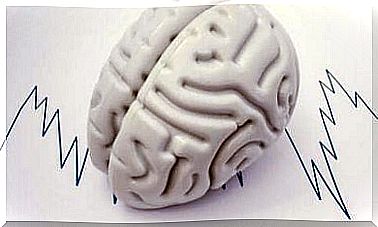Narcissistic Personality Disorder
People with Narcissistic Personality Disorder believe that they are superior to others and have little empathy. As a result, they are not very tolerant of criticism and have relationship difficulties.

Narcissistic personality disorder is a mental condition that causes the individual to have an exaggerated sense of egocentricity, self-esteem, and low empathy for others. He usually thinks he deserves special treatment and absolutely needs to be the center of attention.
People with this disorder often lack interpersonal skills because they focus all of their attention on themselves and don’t care what happens to others. In fact, they don’t approve of others until they flatter them.
However, behind their mask of extreme security, hides a fragile self-esteem which can be deteriorated at the slightest criticism. Because of this, they tend to fall into depressive states easily, as they feel miserable and disappointed that they are not living up to their expectations.
Likewise, they don’t feel happy with their relationships, they constantly compare themselves and think that no one is on their level. What are the causes of this feeling? How to identify it? In this article, we show you the factors that make them react and what are the signs to recognize them.
Causes of Narcissistic Personality Disorder
As with other mental health disorders, there is no exact cause for narcissistic personality disorder. However, it is believed to be developed by a combination of neurobiological, genetic and environmental factors.
Considering this, a person has a higher risk of suffering when they:
- Has or has had poor family relationships, due to over-dedication or over-criticism
- Suffers from alterations in the brain connections of behavior and thought
- Has a family history
- Is commended for her exceptional appearance or abilities
Symptoms of narcissistic personality disorder
The signs that identify Narcissistic Personality Disorder vary, as does the severity with which they occur. Often the person suffering from it is too conceited, exaggerates his abilities and considers others to be inferior. Other symptoms include:
- Have an exaggerated sense of arrogance
- Feel the constant need to be admired or exalted
- Expect recognition of superiority even when it is not deserved
- Exaggerate your accomplishments and talents
- To feel superior to others, to compare yourself to them constantly
- Feeling like you can’t connect with special people at your height
- Monopolize conversations and despise others, considered inferior
- Expect special favors
- Taking advantage of others for personal gain
- Lack of empathy
- Behave in an arrogant manner
- Insist on having the best in everything

Likewise, a person with Narcissistic Personality Disorder finds it difficult to tolerate criticism and cope with any situation they should face. As a result, she also exhibits such signs as:
- Impatience and anger
- Difficulties in socializing
- Depreciating and mistreating others to make it seem like she is superior
- Difficulty regulating emotions and behavior
- Depression from not achieving perfection
- Feelings of insecurity, shame and humiliation
- Inability to deal with stress and adapt to change
Diagnostic
The diagnosis of narcissistic personality disorder is often complicated. Many of its symptoms are similar to those of other personality disorders. In addition, several personality disorders can be diagnosed at the same time.
To confirm this mental illness, the health care professional considers the criteria from the Diagnostic and Statistical Manual of Mental Disorders (DMS-5). He also performs a physical examination and an intensive psychological assessment.
Treatment for narcissistic personality disorder

It is very difficult for a person with a narcissistic personality disorder to access treatment. Due to her egocentric behavior, she generally does not accept that she is having problems and therefore does not see a reason for receiving help.
However, if she is diagnosed and decides to undergo therapy, the mental health professional will recommend several sessions of cognitive behavioral therapy. Its objectives are:
- Learn to communicate better with others
- Understanding the causes of behavior
- Help maintain real personal relationships
- Strengthen the capacity for group collaboration
- Recognize and accept real abilities to tolerate criticism and failure
- Increase the ability to control feelings
- Release the desire to achieve unattainable goals
- Improve self-esteem
- Control moments of stress
Medication
There is no specific drug to fight against narcissistic personality disorder. However, the use of anxiolytics or antidepressants may be suggested to control symptoms of anxiety and depression.
Finally, it should be mentioned that the condition can get worse or better over the years, depending on its cause and lifestyle. There is a lot of improvement in the event that the affected person has a healthy personal relationship and is undergoing treatment.









